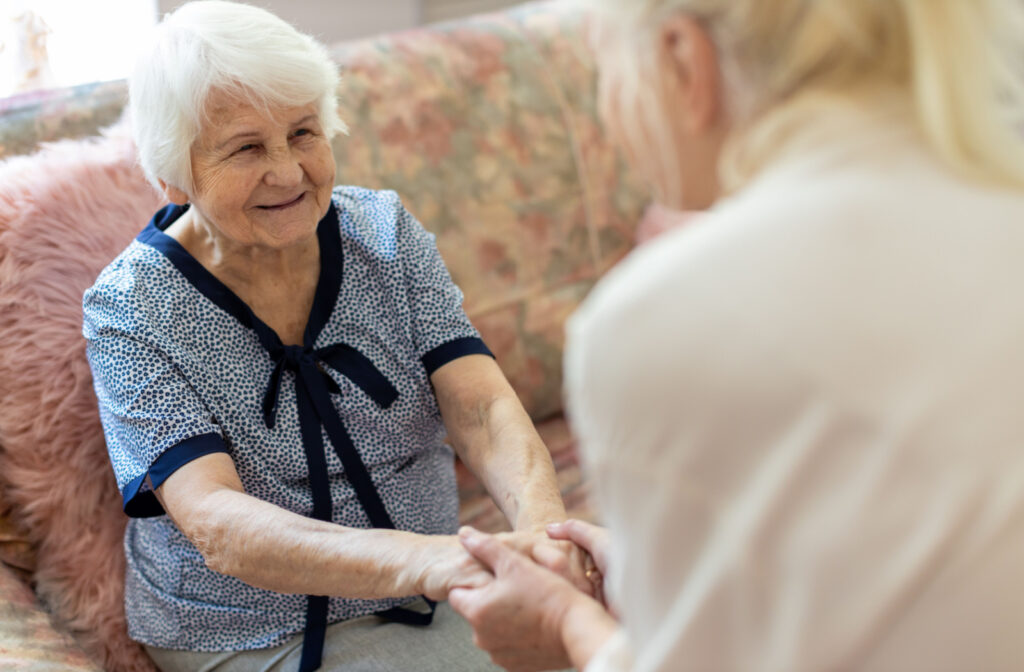Respite care is a short-term service designed to provide relief for those who are caring for family members, particularly seniors. The role of a caregiver can be all-consuming, necessitating a temporary respite to recharge and relieve stress. This is where respite care steps in. It allows caregivers to take a necessary break, ensuring their own well-being while also maintaining quality care for their loved ones.
Signs that you may need respite care include caregiver burnout, lack of personal time, increased stress and anxiety, deteriorating health, and strained relationships due to the constant demands and challenges of caregiving.
Understanding when to access respite care is crucial, as effective timing can help prevent caregiver burnout and enhance overall care quality. It’s a win-win situation for both parties involved—the caregiver receives their well-deserved break, and the senior continues to receive the attention and care they need in a safe, nurturing environment.
What Is Respite Care?
Respite care is a form of short-term relief for caregivers. The primary purpose of this service is to provide a much-needed break to those who tirelessly care for elderly family members or dependents with disabilities. This break is not merely meant for physical rest; it also caters to the mental and emotional stress that accrues from the constant demands of caregiving.
By relieving themselves of respite care services, caregivers can take time to recuperate, engage in personal activities or simply unwind, thereby reducing the risk of burnout. Importantly, this rest period is achieved without compromising on the quality of care provided to the dependents, as professional caregivers step in for continued, competent support.
Types of Respite Care: In-Home Respite Care vs Respite Care Facilities
In-home respite care involves a professional caregiver offering their services within the familiar surroundings of the senior’s own home. This type of care allows for continuity and consistency, as the seniors can continue with their daily routines and remain in a comforting environment. The services provided can range from basic companionship and housekeeping to more specific medical care, depending on the needs of the senior.
On the other hand, respite care facilities present a more comprehensive solution, particularly suitable for seniors requiring intensive or round-the-clock care. In these specialized facilities, the senior temporarily moves into a fully-equipped care home where they receive supervision and assistance.
Respite care facilities have trained staff to manage emergencies and provide a variety of therapeutic and social activities to engage seniors so their well-being is catered to in a holistic approach.
Signs That You Need Respite Care
When determining if respite care is necessary for your loved one, it is important to look out for signs of stress or fatigue in yourself as the caregiver. If you find yourself feeling overwhelmed or exhausted from the responsibility you are carrying, then it is likely time to consider taking a break with respite care. Other indicators that suggest respite care include:
Caregiver Burnout

Caregiver burnout is a state of physical, emotional, and mental exhaustion that can occur when caregivers don’t get the help they need or try to do more than they are able, either physically or financially. They may feel overwhelmed by the constant demands of caregiving, resulting in fatigue, stress, anxiety, and depression.
Lack of Personal Time
Caregivers often find themselves sacrificing their personal time to meet the needs of the ones they care for. They may miss out on social activities and hobbies or simply have some moments of solitude. This lack of personal time can lead to feelings of isolation and resentment, further amplifying the stress and anxiety associated with caregiving.
Increased Stress & Anxiety
Chronic stress and anxiety are common in caregivers, stemming from the constant responsibilities and challenges of caregiving. This ongoing stress can have a detrimental impact on the caregiver’s overall well-being, leading to issues like sleep deprivation, mental health disorders, and a decreased ability to cope with everyday tasks.
Deteriorating Health
Often, in the process of caring for others, caregivers neglect their own health needs. They may ignore symptoms of illness, neglect regular checkups, or adopt unhealthy coping strategies such as poor diet or lack of exercise. This can lead to a downward spiral, resulting in deteriorating physical health over time.
Strained Relationships
The immense responsibility and time commitment involved in caregiving can strain relationships with other family members, friends, and even the person being cared for. The caregiver may feel misunderstood, unsupported, or isolated, leading to conflicts and tension within their personal relationships.
The Fairways at Naples: Your Trusted Respite Care Provider
Recognizing the signs that indicate the need for respite care is crucial in maintaining caregiver health and the quality of care they provide. When stress, anxiety, lack of personal time, deteriorating health, and strained relationships become apparent, it may be time to explore the supportive services of respite care.
At The Fairways at Naples, we understand the challenges of caregiving, and we’re committed to providing respite care solutions that work for you. Our services are designed to give caregivers the well-deserved break they need while their loved ones continue receiving high-quality care in a safe and nurturing environment.
Don’t let the challenges of caregiving overwhelm you. Explore our respite care services today, and consider scheduling a consultation or tour. Experience firsthand the peace of mind that comes from knowing your loved one is in good hands at The Fairways at Naples.



